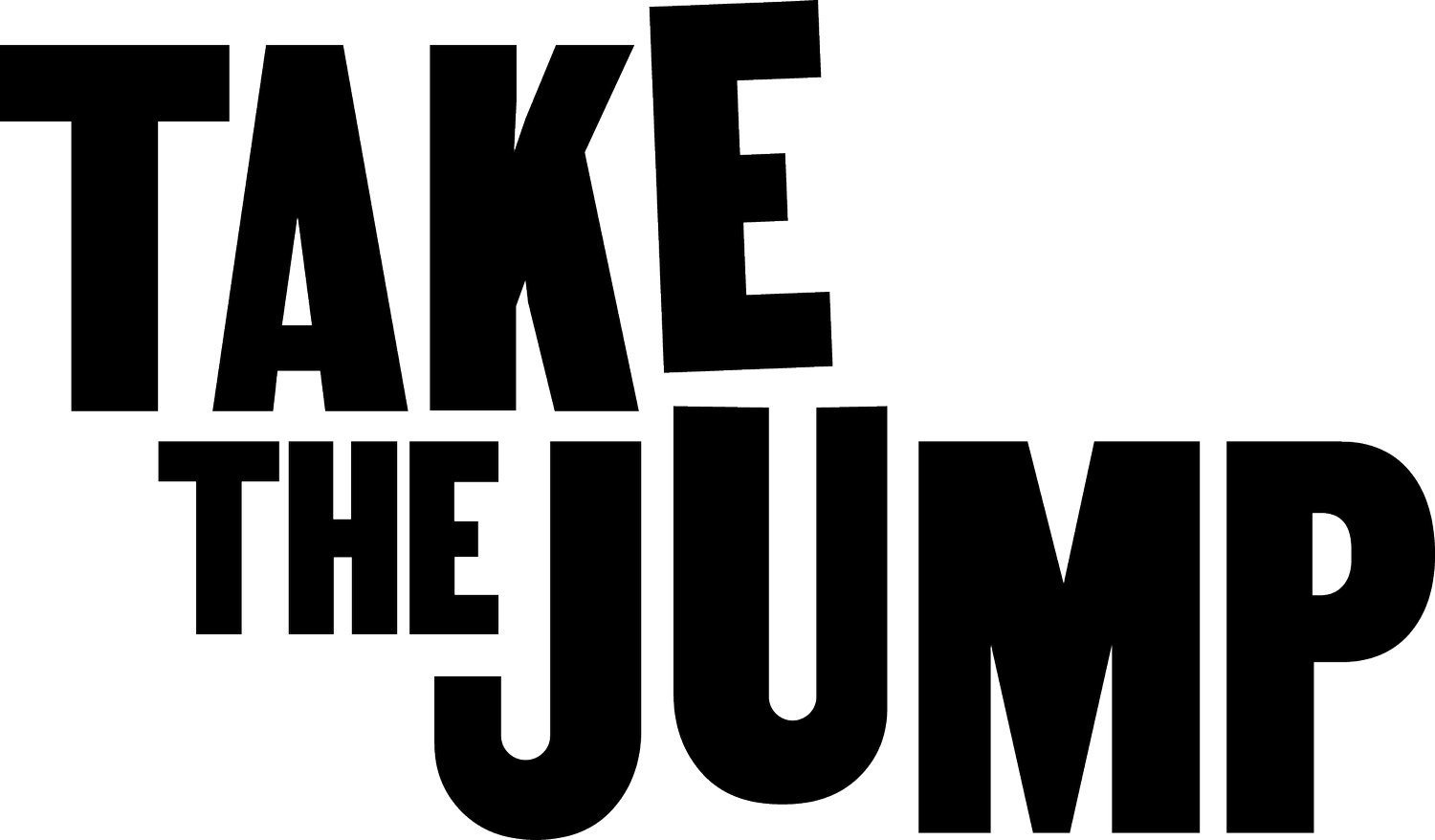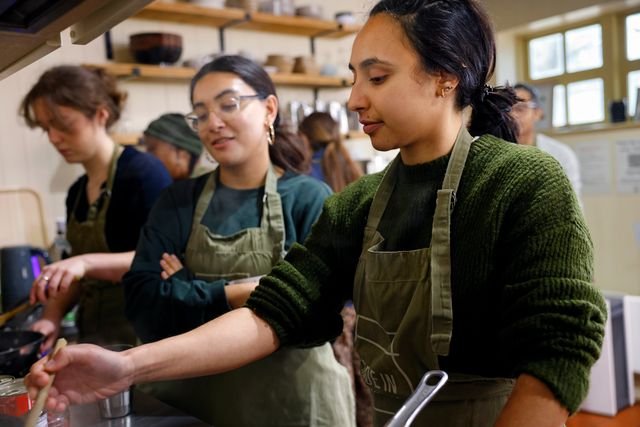Take the Jump meets…..made in hackney
Louise: From what I know about Made in Hackney, you don’t see climate action as separate from fun, wellbeing and community connection. That’s what Take the Jump is all about too - so tell us more!
Raha: Yes, at Made in Hackney, climate, wellbeing and community go hand in hand. The work we do directly impacts our community. At our cooking classes, people come together and inspire each other to live more consciously.
Hackney is an amazing place to inspire people to eat more plant-based food. We have so many cultures here, and many of them have their own plant-based food traditions and skills (like preserving, fermenting, using spices for healing). Some of these go back to ancient times.
So while we might see plant-based food as a recent idea, it’s not. Plant-based cooking has been around for a very long time, and by speaking to different communities, you realise the wealth of knowledge that’s already out there and the ways people have brought their traditions into the present.
Louise: This is the time when we truly need those skills. So by learning from all the different communities around us, there’s a kind of social as well as environmental repair going on.
Raha: Definitely. At our cooking classes, conversation, sharing and laughter are always catalysts for change. People start to connect the dots between social, personal and environmental regeneration.
For example, a lot of ancient knowledge on fermentation and gut health is now coming to be seen as crucial for our wellbeing. Most of our teachers are chefs, dieticians and nutritionists who come from diverse backgrounds and already hold this knowledge. By learning from them and each other in the classes, we too can practise these methods and ensure we understand the benefits and history behind them.
Amongst our classes, we also hold intergenerational sessions, where older people share their knowledge and experience - you’ll hear all kinds of useful tips and hacks (recently i learned to mush garlic up with the back of a fork to avoid spending time chopping!).
Louise: What happens if you don’t live in a diverse place, but you want to start your plant-based journey and learn from all these traditions?
Raha: Stay open and curious - there’s so much we can learn wherever we are. There are lots of online classes (including ours on our website), and Youtube tutorials that you can follow. For so many of us, exploring plant-based food is about trial and error, exploring, seeing what you like and what you don’t. There’s no need to jump in and transform your habits overnight (unless you really want to) - take it gently, and see what flavours you enjoy and any wellbeing improvements you start to experience.
Louise: Listening to ourselves feels so important as we’re at a time when we’re awash with misinformation. Many people don’t know what to believe and plant-based food is often over-hyped as the solution to all our challenges.
Equally, we know people want to take action on climate but are confused about what to do. They’re overwhelmed by the contradictory messages they’re getting from all kinds of sources.
Raha: Absolutely, which is why we’re cautious with the information we offer. We know there are huge benefits to plant-based eating, but we prefer to encourage people to explore, and aim to incorporate more fruit and vegetables in their diet. Eating intuitively and taking note of how you feel in yourself is a really good antidote to all the confusion out there.
Louise: That’s such a great parallel with Take the Jump’s approach. Feeling good is the best proof that you’re moving in a positive direction. Our shifts are all science-based - but ultimately, proof lies in whether they restore the deeper sense of well-being that comes from moving beyond our current patterns of over-consumption.
Raha: Yes, and although it’s different for everyone, we often see class attendees making the transition really quickly. Their wellbeing slowly improves and they’re often excited to let us know! It’s so great to get that feedback.
Louise: How does the climate angle come through in your classes?
Raha: It comes up in conversation as the class progresses - so again, it’s present in a natural, spontaneous way. We absolutely avoid preaching. And often it’s the processes we teach - avoiding waste, composting, looking after ingredients - that gradually help people move into a place of awareness and empowerment, where they realise they do have a role to play in the bigger picture.
Louise: That feels so powerful - people making changes together through doing and feeling, rather than through trying to absorb top-down messages and ‘shoulds’.
Is there an on-line class you’d recommend to the Take the Jump community as a way to explore plant-based eating, especially for beginners.
Raha: Yes, our April gut health class would be a good choice. It’s led by a fantastic teacher who’s super-knowledgeable and great at adapting recipes to your own preferences.
Louise: I’m in - sounds wonderful!
The great work being done at Made in Hackney is a fantastic example of how we can move together towards one of the most impactful shifts we can make: ‘Eat Green’.
At Take the Jump, we’re here to support this shift. Moving joyfully towards a fair and sustainable way of eating is a win for everyone - boosting our health, our mental wellbeing and even our social life.
How is your journey towards Eat Green going? If you have a story to share, or just need an inspiration boost, get in touch! And sign up here to try all Six Shifts - at your own pace and with support.


